According to economic experts, when Vietnam pays attention to reducing emissions, it will help increase product value, attract investors, thereby ensuring competitive position and increasing advantages in exporting food and foodstuffs.

In order to ensure socio-economic development and mitigate climate change, on the afternoon of August 23, in Ho Chi Minh City, Ho Chi Minh City University of Agriculture and Forestry, the International Forestry Research Organization (CIFOR) and the Institute of Environmental Studies (University of Adelaide) jointly organized a discussion on the current situation and development strategy of low-emission food systems in the Mekong Delta (MD).
Here, many experts also mentioned perspectives from policy to reality, thereby ensuring food security but must be associated with climate change mitigation, especially in the Mekong Delta region. Currently, this region is playing an important role in the economy, supplying the food and food chain in Vietnam. Specifically, this region contributes 50% of rice output, 95% of rice exports, 65% of aquaculture output, 60% of fish exports, 70% of fruits of the whole country...
Dr. Phan Tai Huan, Vice President of Ho Chi Minh City University of Agriculture and Forestry, said that currently, the world is experiencing climate change, and countries are committed to reducing CO2 and gases that affect food production. In particular, Vietnam is a country that plays an important role in the national food security strategy. The supply of food comes from the Mekong Delta, which is considered the center of food production in the country. Therefore, studying and shaping the trend of developing a low-emission food system is a premise for implementing greenhouse gas emission reduction, ensuring the Government 's goal of committing to bring net emissions to "0" by 2050.
Similarly, Dr. Kha Chan Tuyen, Ho Chi Minh City University of Agriculture and Forestry, said that currently, emissions from the global food system account for about 31% of global emissions. Vietnam alone accounts for 1% of emissions from the global food system, but the emission rate is very fast. More importantly, Vietnam's agricultural sector is playing a very important role in global food security. Therefore, when Vietnam pays attention to reducing emissions in the food industry, it will help facilitate trade, ensure competitive position, attract investors... especially in large markets in the US and Europe.

“To reduce emissions in the food industry and ensure food security, Vietnam must continue to improve the efficiency and effectiveness of food production; prevent and reverse deforestation, land degradation and desertification; consume healthy and sustainable diets; limit food loss and waste... In the long term, Vietnam needs to apply mechanization to effectively reduce emissions. In which, each production sector applying different mechanization measures will be able to support each other in reducing emissions into the environment,” Dr. Kha Chan Tuyen recommended.
Source


![[Photo] Panorama of the Opening Ceremony of the 43rd Nhan Dan Newspaper National Table Tennis Championship](https://vphoto.vietnam.vn/thumb/1200x675/vietnam/resource/IMAGE/2025/5/19/5e22950340b941309280448198bcf1d9)
![[Photo] Close-up of Tang Long Bridge, Thu Duc City after repairing rutting](https://vphoto.vietnam.vn/thumb/1200x675/vietnam/resource/IMAGE/2025/5/19/086736d9d11f43198f5bd8d78df9bd41)

![[Photo] General Secretary To Lam attends the conference to review 10 years of implementing Directive No. 05 of the Politburo and evaluate the results of implementing Regulation No. 09 of the Central Public Security Party Committee.](https://vphoto.vietnam.vn/thumb/1200x675/vietnam/resource/IMAGE/2025/5/19/2f44458c655a4403acd7929dbbfa5039)
![[Photo] President Luong Cuong presents the 40-year Party membership badge to Chief of the Office of the President Le Khanh Hai](https://vphoto.vietnam.vn/thumb/1200x675/vietnam/resource/IMAGE/2025/5/19/a22bc55dd7bf4a2ab7e3958d32282c15)





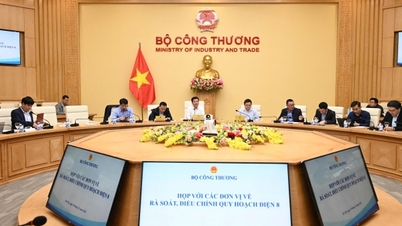
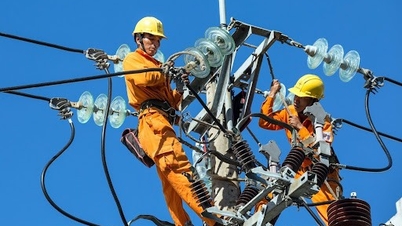


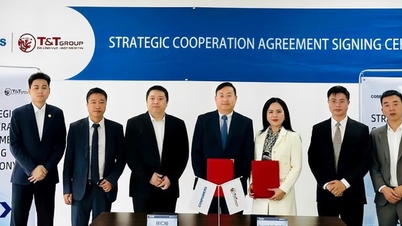

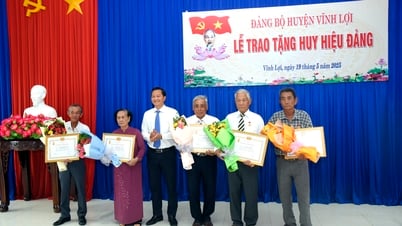
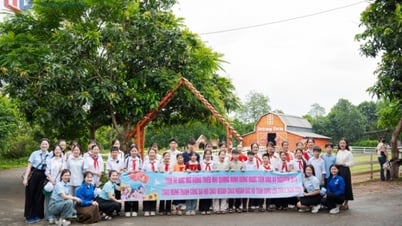

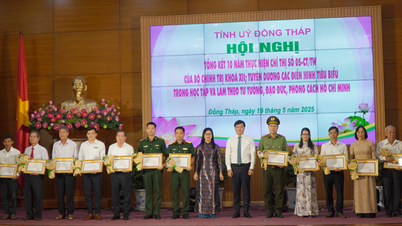













![[Photo] Prime Minister Pham Minh Chinh inspects the progress of the National Exhibition and Fair Center project](https://vphoto.vietnam.vn/thumb/1200x675/vietnam/resource/IMAGE/2025/5/19/35189ac8807140d897ad2b7d2583fbae)












































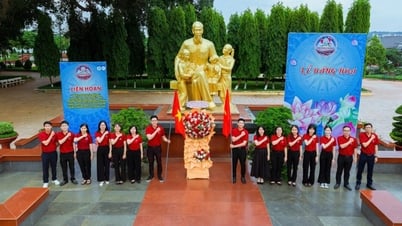









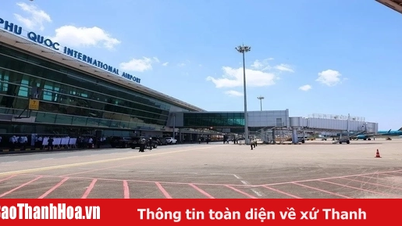




![[VIDEO] - Enhancing the value of Quang Nam OCOP products through trade connections](https://vphoto.vietnam.vn/thumb/402x226/vietnam/resource/IMAGE/2025/5/17/5be5b5fff1f14914986fad159097a677)





Comment (0)